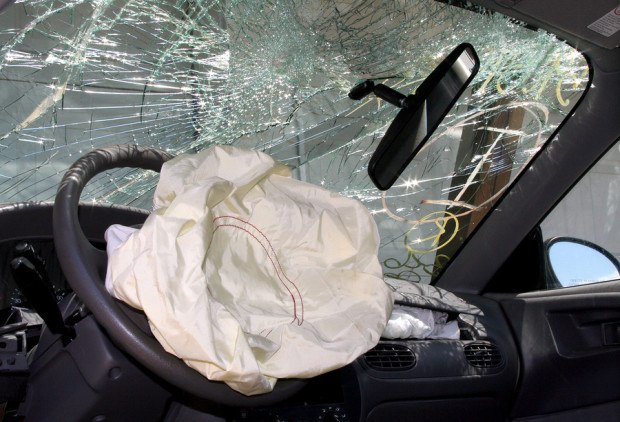Takata Corp. shares rose by the daily limit after the Wall Street Journal reported the company is nearing a settlement with the U.S. Department of Justice to resolve allegations of criminal wrongdoing related to its faulty air bags.
Such an agreement may include pleading guilty to criminal misconduct and penalties of as much as $1 billion, the newspaper reported, citing people familiar with the matter. A settlement could be reached by next month, according to the report.
The stock jumped 16 percent to 707 yen at the close in Tokyo, the highest since Jan. 19. Takata was not the source of the report on the settlement and nothing has been decided, the company said Thursday in a statement. The Department of Justice declined to comment.
“A settlement fee of a maximum $1 billion is not an impossible amount for Takata to handle,” said Nobuyuki Fujimoto, a senior market analyst at SBI Securities Co. in Tokyo. “Especially if the company doesn’t have to pay it all at once but over a few years, investors are thinking Takata could actually make it through this somehow.”
A settlement may facilitate a takeover, as Takata faces a cascade of compensation and penalties costs at the same time it’s working to find a buyer and complete its restructuring. Takata and its financial adviser Lazard Ltd. have asked prospective buyers to complete the due diligence in February, people familiar with the matter said earlier this month.
The acquirer will potentially be on the hook for recall costs and liability payments while having to ensure a stable supply of replacement parts to automakers. Regulators have ordered recalls scheduled through at least 2019 that could eventually exceed 100 million air bags used by more than a dozen automakers, including Honda Motor Co., Volkswagen AG and General Motors Co.
The air-bag maker is leaning toward bids from Autoliv Inc. and Key Safety Systems Inc., people familiar with the matter have said. The two gained an edge because both have technical expertise in air-bag systems and safety equipment and automakers view them as able to lower costs and improve quality of Takata parts.





















 State Farm Mutual to Pay $5B Dividend to Auto Insurance Customers
State Farm Mutual to Pay $5B Dividend to Auto Insurance Customers  Viewpoint: Runoff Specialists Have Evolved Into Key Strategic Partners for Insurers
Viewpoint: Runoff Specialists Have Evolved Into Key Strategic Partners for Insurers  Why Claims AI Build vs. Buy Decisions So Often Miss the Mark
Why Claims AI Build vs. Buy Decisions So Often Miss the Mark  Teens’ First Year on the Road Most Deadly
Teens’ First Year on the Road Most Deadly 



